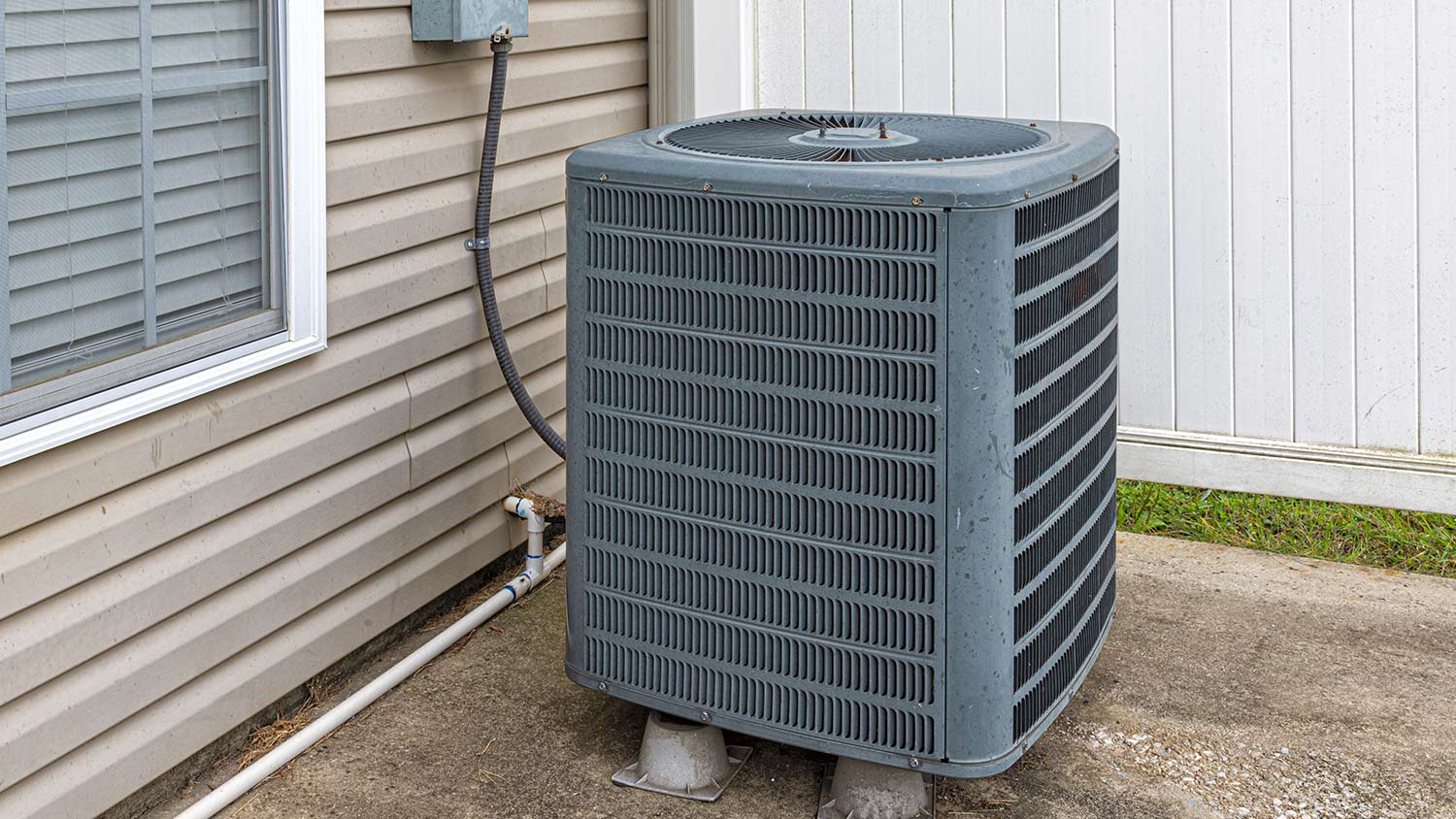
Find out the average humidifier repair cost, what impacts pricing, and how to save. Get expert tips to budget for your humidifier repair.
Ditch the stuffy indoor air with an AC enhancer


AC enhancers tell your AC to cool its coils before pushing out air.
Current efficiency ratings don’t take into account a single run cycle.
AC enhancers improve your HVAC system’s energy efficiency.
Compared to whole-system dehumidifiers, AC enhancers are more affordable.
Clammy skin and foggy windows got you feeling stuffy in your home? If so, then you may have a humidity problem. But here’s the good news: solving this problem doesn't necessarily require the purchase of a high-efficiency air conditioner or a whole-house dehumidifier. An AC enhancer works with an existing system to control humidity and make your house more comfortable.
An AC enhancer is a small, rectangular-shaped enhancement that’s installed between the condenser and evaporator. This enhancement gives the coil the ability to dehumidify upon startup. It sends a message to the condenser to start the coil-cooling process early on—before the blower or fan cycles on. Since the coil is cooled in advance, it prevents moisture that has accumulated on the coil from blowing off into the air.
An air conditioner with an added enhancer effectively combats the inefficient start and stop portions of the run cycle. In order to understand how an AC enhancer works, let’s look at how an air conditioner unit works:
Manufacturers go to great lengths to create an efficient air conditioner, but the current Seasonal Energy Efficiency Ratio (SEER) rating only evaluates an AC unit’s performance based on efficiency over a continuous cycle. It doesn’t consider the efficiency at the beginning and end of a single run cycle.
When a standard AC unit runs, here's what happens:
For the first 10 minutes or so after startup, the AC capacitor kicks in and works the system up to its optimal efficiency as the unit waits for the coils to become cold and dehumidify.
When the AC reaches the end of the operating cycle, the coil is full of moisture, some of which drains out of the system; however, much of the moisture removed from the home stays inside the AC unit, resting on the coil. In some cases, several gallons of water can remain on the coil.
Regardless of the amount of water built up, when the AC starts up again, the fan blows warm air over the coil, waiting for it to cool again. This air movement blows the moisture resting on the coil back into your home.
Long story short: If you live in a humid climate, your air conditioner is working against itself as it attempts to dehumidify and cool the home. This common AC problem can be solved with an AC enhancer, which signals to your HVAC system that it needs to cool the coil before blowing air through your home.

AC enhancers offer a number of benefits for your home. A few of the advantages an AC enhancer delivers include:
Better control over home dehumidification in general
Improved efficiency, since the compressor doesn't have to manage a high amount of moisture every time it starts up
Increased HVAC system lifespan
Energy savings, as the AC unit achieves peak efficiency quicker
Inexpensive compared to dehumidifiers
Lowers risk of mold, mildew, and rot
More comfortable indoor temperatures
You may be wondering whether a whole-house dehumidifier is also an effective choice for controlling humidity. While a dehumidifier removes moisture, it doesn't address the inefficiencies in the air conditioner run cycle.
Not to mention, a dehumidifier is a costly system to purchase and run, as it uses electricity. Depending on the capacity, a professionally installed dehumidifier costs between $1,300 and $2,800 on average.
Opting for an AC enhancer eliminates the high purchase and operating costs of a dehumidifier. The AC enhancer itself ranges in price from $100 to $120, plus the cost for an HVAC company to install the device.
The type of climate you live in, the overall energy efficiency of your home, and your budget will dictate which humidity solution is best. Talk to your local HVAC contractor about the available options to improve dehumidification, cooling, and operating efficiencies in your home.
You might also want to consider having your pro conduct an AC inspection to determine how you can improve the performance of your HVAC system.
From average costs to expert advice, get all the answers you need to get your job done.

Find out the average humidifier repair cost, what impacts pricing, and how to save. Get expert tips to budget for your humidifier repair.

Do you know what it will cost to reroute ductwork in your home? Discover the cost factors and other considerations of this HVAC project.

What you’ll pay in Columbus, OH, for furnace repairs depends on many factors. Here’s a breakdown of what can go wrong and the cost to fix those issues.

When you notice hot and cold zones in your home, it pays to learn how to balance airflow in your ducts to even out the temperature.

Baseboard heater covers can endure a lot of wear and tear, but eventually you’ll want to replace them. Here’s the best way to switch out baseboard heater covers.

Energy bills rising? Here’s how to perform a DIY duct leakage test to locate any damage in your ductwork and restore your energy-efficient home.